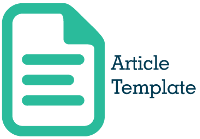NDERES PROFIT SHARING MODEL ON THE BROWN SUGAR FARMERS IN NGLEGOK DISTRICT BLITAR REGENCY
DOI:
https://doi.org/10.35457/jares.v4i2.841Keywords:
Profit Sharing Model, Nderes, Brown SugarAbstract
Profit sharing is a mutually beneficial collaboration between two or more people on mutual agreement. The purpose of this study is to find out the profit sharing model “nderes” for brown sugar farmers in Nglegok Kabupaten Blitar sub-district. One area in Blitar regency which is a producer of brown sugar is Nglegok Subdistrict. This is because Nglegok village has fertile land and there are still many coconut trees that grow up. Therefore, many Ngelgok subdistrict residents who utilize the results of coconut tree sap to be made into brown sugar even though to take coconut palm juice the risk is quite large because it is not impossible to have an accident when taking the sap, such as falling from coconut trees and others. Because of the large risk, many owners of coconut trees do not dare to climb by themselves, so in order to obtain additional income they work together with other people who dare to take the sap water with a profit sharing system. This research method used a qualitative approach with the interview method to the beneficiary, coconut tree owners and “legen” cookers in Nglegok sub-district Blitar Regency. The results of this study produce various concepts of cooperation, namely based on the results of “nderes” in the form of ounces and profit sharing based on the day.
Downloads
References
Anis, Mochammad. 2018. Analisis Pendapatan Produksi Gula Merah Skala Rumah Tangga Dengan Metode “Tampan”. Skripsi: Fakultas Ekonomi Universitas Islam Balitar.
Ansyar, Afriyanti. 2014. Analisis Perbedaan Pendapatan Petani Pemilik Penggarap Dan Petani Penggarap Pada Usaha Gula Kelapa Desa Purbosari Kecamatan Seluma Barat Kabupaten Seluma. Skripsi: Fakultas Ekonomi Universitas Bengkulu.
Fauzan, Almanshur. Ghony, Djunaidi. 2012. Metodologi Penelitian Kualitatif. Jogyakarta : Ar-Ruzz Media.
Herdiansyah, Haris. 2012. Metodologi Penelitian Kualitatif Untuk Ilmu-Ilmu Sosial. Jakarta Selatan : Salemba Humanika.
Irmayanti. 2010. Sistem Bagi Hasil Antara Pemilik Lahan Dengan Petani Penggarap Usaha Tani Lahan Sawah Di Desa Bontotallasa Kecamatan Simbang Kabupaten Maros. Skripsi: Fakultas Pertanian Universitas Hasanudin.
Jusmaliani. Muhammad Soekarni, Ed. 2005. Kebijakan Ekonomi Dalam Islam. Yogyakarta : Kreasi Wacana.
Khotimah, Siti dkk. 2014. Analisis Pendapatan Pengrajin Gula Kelapa Dan Kontribusinya Terhadap Pendapatan Keluarga Di Desa Lojejer Kecamatan Wuluhan Kabupaten Jember. JSEP Vol.7 No.2 Hal. 45-54.
Moleong, Lexy J. 2007. Metodologi Penelitian Kualitatif. Bandung : Remaja Rosdakarya.
Sugiyono. 2009. Metode Penelitian Bisnis (Pendekatan Kuantitatif, Kualitatif, dan R&D). Bandung : Alfabeta.
Wahyuningsih, Tri. 2011. Sistem Bagi Hasil Maro Sebagai Upaya Mewujudkan Solidaritas Masyarakat. Jurnal Komunikasi, Vo;3 No. 02.
Hidayat, L., Huda, A. M., & Mauliyah, N. (2019). Model Kerjasama Bagi Hasil Dengan Metode “Kedok” Pada Petani Padi Pemilik Dan Petani Padi Penggarap (Studi Kasus Pada Petani Padi Pekon Mulyorejo Kecamatan Banyumas Kabupaten Pringsewu), 3(1).
Huda, A. M., & Martanti, D. E. (2018). Pengantar Manajemen Strategik 1. (J. Press, Ed.) (1st ed.). Bali: http://books.jayapanguspress.org/index.php/publisher/article/view/18/18. Retrieved from http://books.jayapanguspress.org/index.php/publisher/article/view/18/18
Mauliyah, M., Masrunik, E., & Wahyudi, A. (2017). Model Transaksi “Kenceng Jreng” Danmodel “Saur Gowo” Pada Jual Beli Sayuran Di Kabupaten Blitar Oleh:, 2.
Downloads
Published
Issue
Section
License
Authors who publish with this journal agree to the following terms:
- Copyright on any article is retained by the author(s).
- Author grant the journal, right of first publication with the work simultaneously licensed under a Creative Commons Attribution License that allows others to share the work with an acknowledgement of the work’s authorship and initial publication in this journal.
- Authors are able to enter into separate, additional contractual arrangements for the non-exclusive distribution of the journal’s published version of the work (e.g., post it to an institutional repository or publish it in a book), with an acknowledgement of its initial publication in this journal.
- Authors are permitted and encouraged to post their work online (e.g., in institutional repositories or on their website) prior to and during the submission process, as it can lead to productive exchanges, as well as earlier and greater citation of published work.
- The article and any associated published material is distributed under the Creative Commons Attribution-ShareAlike 4.0 International License













